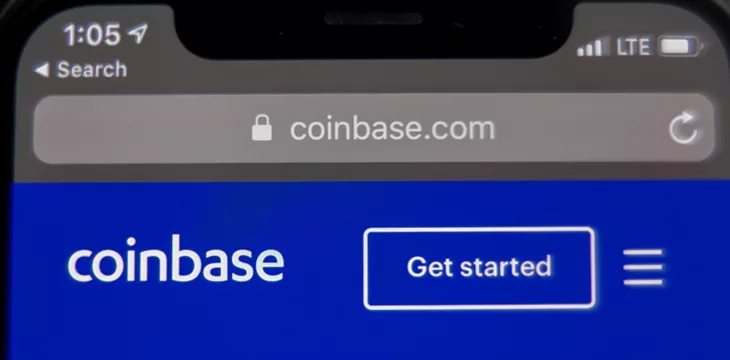|
Getting your Trinity Audio player ready...
|
An association of state securities regulators has filed an amicus brief in support of the U.S. Securities and Exchange Commission’s (SEC) case against Coinbase (NASDAQ: COIN), accusing the exchange of attempting to “narrow and misapply the established legal framework in order to avoid being subject to the same regulatory obligations as all other participants in the Nation’s securities markets.”
An amicus curiae brief is a submission made in a case by a non-party person or entity who has some interest in it (amicus curiae is Latin for ‘friend of the court’). They have become a regular feature in regulators’ various cases against digital asset companies: typically, briefs flood in from the digital asset industry in support of whatever company happens to be violating U.S. securities laws, knowing that one day they too are likely to be sued by the SEC.
This time is different, however. The brief was filed by the North American Securities Administrators Association (NASAA), which comprises the securities regulators from all 50 states as well as regulators in D.C., Puerto Rico, the U.S. Virgin Islands, and Guam. They say that contrary to bleating from Coinbase and the other digital asset companies in the SEC dock, the SEC’s position (that Coinbase’s staking program and at least thirteen of its listed digital assets are securities) is neither ‘novel’ nor ‘extraordinary’ under U.S. securities laws.
They quote the judgment in the Howey Test, which is the case setting out the test for determining whether an offering amounts to an investment contract and, therefore, a security: “The test embodies a flexible rather than a static principle, one that is capable of adaptation to meet the countless and variable schemes devised by those who seek the use of money of others on the promise of profits.”
They go on to say:
“In other words, the Howey test is meant to be sufficiently flexible to encompass all manner of technological and other innovations in the securities markets, including securities sold and traded on blockchains.”
The brief also aims to address an oft-repeated complaint from the digital asset industry that zealous enforcement risks harming the economy of the United States.
“While they receive outsized attention from the media and regulators because they are aggressively marketed and fertile grounds for fraud, that attention belies the very limited size and significance of this ‘industry’ in the context of the broader US economy.”
It also draws the court’s attention to the fact that a recent decision in SEC v Ripple, which determined that assets sold on secondary markets could not be securities, was recently rejected by the District Court in the SEC’s case against Terraform Labs.
“Further, the Howey test does not differentiate between primary and secondary market transactions. Such a differentiation would run counter to the economic reality of such transactions. In any secondary market transaction, whether blind or face-to-face, a seller can only sell the interest that she has. If she has a security, and sells that security, then the buyer purchased her security… At minimum, recent decisions form other judges in this District demonstrate that it is far from settled law that such a distinction exists.”
The NASAA also tells the court that Coinbase is incorrect to say that the SEC has been inconsistent on whether or not its staking program and the assets it sells amount to securities. They point to a DAO report issued by the SEC in July 2017, where it found that digital assets being offered by ‘The DAO’ were securities, which should be the end of Coinbase’s (and others) contention that the SEC has never before indicated that digital assets might be illegal securities. They additionally highlight that the SEC has already brought over 100 enforcement cases in the digital asset industry, with 75 of those already occurring before 2021—so in no sense can Coinbase argue that it was not on notice that its conduct might be illegal.
The NASAA amicus curiae brief is refreshing. The SEC has, by enforcing securities laws within the digital asset industry, made an enemy out of the many companies who profit from listing illegal, unregistered securities on digital asset platforms. The result is that there is no shortage of companies willing to file amicus curiae briefs against the SEC.
“Protect our profits” doesn’t sound great in an amicus curiae brief, so such submissions are forced to retread old, debunked claims such as that Howey requires there to be a formal contract or that the SEC has never given any indication that digital assets may be investment contracts. Without that same profit motive, the natural allies of the SEC are much less likely to go out of their way to file an amicus curiae brief.
That said, it’s hard to imagine a more forceful submission than a united front of every securities regulator in the country, all saying that the SEC action is a perfectly appropriate application of securities laws and that Coinbase’s defense should be rejected.
Follow CoinGeek’s Crypto Crime Cartel series, which delves into the stream of group—from BitMEX to Binance, Bitcoin.com, Blockstream, ShapeShift, Coinbase, Ripple,
Ethereum, FTX and Tether—who have co-opted the digital asset revolution and turned the industry into a minefield for naïve (and even experienced) players in the market.

 02-15-2026
02-15-2026 




